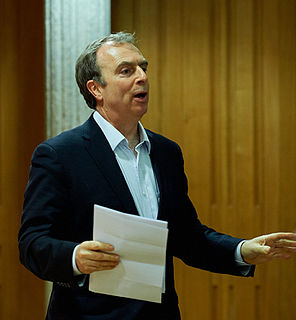A Quote by Linda Colley
Any kind of new U.K. federal system would almost certainly demand the creation of a written constitution. Properly drafted, such a document could, among many things, pin down more effectively the proper dimensions of prime ministerial power.
Related Quotes
Does the U.S. Constitution stand for anything in an era of government excess? Can that founding document, which is supposed to restrain the power and reach of a centralized federal government, slow down the juggernaut of czars, health insurance overhaul and anything else this administration and Congress wish to do that is not in the Constitution?
[The Massachusetts constitution] resembles the federal Constitution of 1787 more closely than any of the other revolutionary state constitutions. It was also drawn up by a special convention, and it provided for popular ratification - practices that were followed by the drafters of the federal Constitution of 1787 and subsequent state constitution-makers.
Americans revere both the Constitution and an independent Court that applies the document's provisions. The Court has done many excellent things in our history, and few people are willing to see its power broken. The difficulty with all proposals to respond to the Court when it behaves unconstitutionally is that they would create a power to destroy the Court's essential work as well.
The tenth amendment said the federal government is supposed to only have powers that were explicitly given in the Constitution. I think the federal government's gone way beyond that. The Constitution never said that you could have a Federal Reserve that would have $2.8 trillion in assets. We've gotten out of control.
If we stuck to the Constitution as written, we would have: no federal meddling in our schools; no Federal Reserve; no U.S. membership in the UN; no gun control; and no foreign aid. We would have no welfare for big corporations, or the "poor"; no American troops in 100 foreign countries; no NAFTA, GAT, or "fast-track"; no arrogant federal judges usurping states rights; no attacks on private property; no income tax. We could get rid of most of the agencies, and most of the budget. The government would be small, frugal, and limited.
In a very real sense, the Constitution is our compact with history . . . [but] the Constitution can maintain that compact and serve as the lodestar of our political system only if its terms are binding on us. To the extent we depart from the document's language and rely instead on generalities that we see written between the lines, we rob the Constitution of its binding force and give free reign to the fashions and passions of the day.
After all, our Constitution was intended as a popular document. It was drafted and ratified by the people. It established democratic institutions. It entrusts the people with the power to make the tough decisions. And, in most cases, it prefers the will of the people to the unchecked rule of judges.
I was a very senior minister in the Howard government and I sat around this particular table [in the prime ministerial office] in many discussions. The difference between being a senior minister and the prime minister is that ultimately the buck does stop with the prime minister and in the end the prime minister has to make those critical judgement calls and that's the big difference.
I don't think any foreign Internet company can effectively compete against Chinese companies in the Chinese market. The regulatory environment is so difficult that it's almost impossible for foreigners to have an advantage over locals who have better political connections and who can manipulate the regulatory system much more effectively.







































